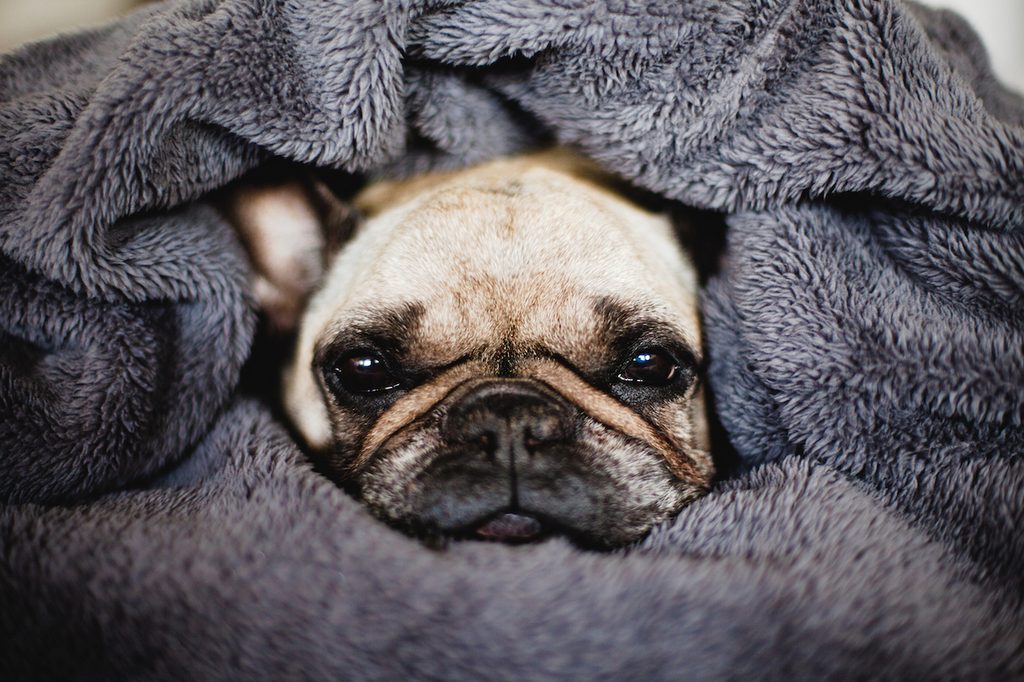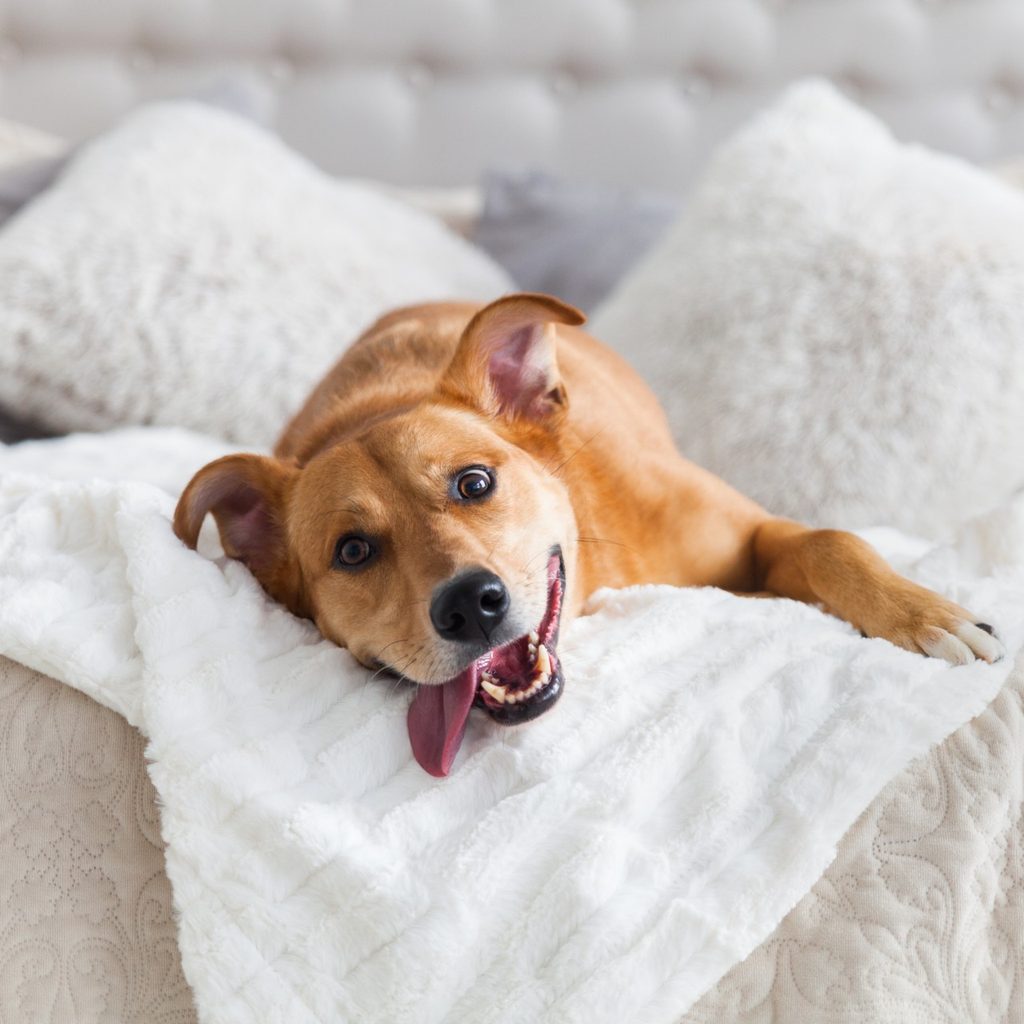
One of the most lovable things about dogs is their attachment to you, their pet parent. They want to be wherever you are — no ifs, ands, or buts. Although you, of course, adore spending time with your four-legged friend, there are times when you might want your space — for instance, when it’s time to go to sleep.
Dogs don’t always understand these boundaries at first, but it is possible to train them to sleep in their crate, a dog bed, or anywhere else you prefer that’s not your sleeping spot. With these five tips and tricks, you can learn how to keep your dog off your bed and in their own in no time.

Why do dogs want to sleep on your bed?
When you bring a pup home, you become part of their pack. While the dominance theory has been thoroughly debunked, they still want to sleep in close quarters with you and anyone else they deem to be in the group. Sleeping next to you helps them feel safe and happy.
Plus, it’s really comfy to lie in your soft and warm bed with your fuzzy blankets. Because canines often go by smell, they may also be attracted to the scent you leave behind. Approximately 50% of dog owners report sharing their bed with their dog, but that doesn’t mean you have to join the crowd.

Methods for keeping your dog off your bed
There are a lot of great approaches and tips you can follow to keep your dog in their own comfy bed. The most important thing to remember is that you’re not being “mean,” you are simply being firm. Read on to learn about the best ways to achieve this bedtime goal:
1. Consistency is key
When it comes to training your dog to do something, it is important to always remain consistent and firm. Always use the same commands, such as “off” to get them off your bed, or “place” to get them into their bed. By using the same commands over and over again, your dog will begin to react almost instantly. You can always use rewards like affection, praise, their favorite toy, or small treats to reinforce the good behavior. This type of training can take weeks or months to fully click with your dog, so it is important to be patient.
2. Get your dog a bed they can’t refuse
If your dog has the comfiest bed on the market, they may not even miss sleeping next to their favorite person. There are so many amazing beds available online and in pet stores. You can do some research and read reviews to see what beds are loved the most.
3. Keep them close by
Just because you are kicking your dog off the bed doesn’t mean you need to keep them out of the room. A setup near your bed or right outside of your bedroom will promote a sense of security for your dog and will help them accept this new sleeping arrangement.
4. Reinforce with the “off” command
One of the best commands you can use for this type of training is “off.” This word is short and easy to say. It is important to say it firmly and point to the floor to give your pup some direction. Whenever you find your dog on your bed, immediately command “off” and then reward the behavior once they hop down.
5. Use placement training
Just like “off,” you can utilize another short word like “place” to give your dog some direction. The word “place” can be used to describe their very own bed. By telling them to go to their place, they have a sense of direction. You can use both “off” and “place” consecutively to let them know it is bedtime.

Why keep your dog off your bed in the first place?
Although many of us love bedtime snuggles with our furry best friends, there are quite a few benefits to keeping your sleeping spaces separate. Some of these reasons include:
- Better sleep for you. Dogs tend to be bed hogs. They love to stretch out and get comfy. Although this is great for them, it’s not so great for you. People usually sleep better when they have the space they need to rest. It is also common for loud snoring from your dog to create some issues at bedtime.
- Your bed stays soft, not furry. Shedding is a common characteristic of nearly every breed of dog. Some shed way more than others, but their small hairs still end up everywhere, regardless of breed. When you don’t allow your dog on your bed, your bed stays cleaner and less hairy. The excessive shedding on your bed can cause itchiness on your skin and face, not to mention some unintentionally swallowed hairs in your mouth.
- Fewer trips to the laundry room. Very few dogs wear shoes outside every day and take a daily bath before bedtime. Because of this, it is easy for dogs to track dirt, insects, and debris onto your soft sheets. By keeping your dog off your bed, you’ll spend less time washing your sheets and more time enjoying them.
Keeping your dog off your bed requires consistency, patience, and firmness. You have to do everything you can to resist those puppy eyes. You will be happy you did in the long run, though, because both you and your pup will benefit from a better night’s sleep every time.


